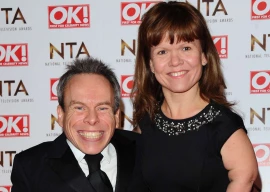
The latest rise in the price of petroleum and gas products has caused predictable upheaval inside and outside the government. The opposition has joined the media in condemning the government’s decision to pass on the differential to the consumers, leaning on it, to ask the government to go home or hold immediate elections. Members of the National Assembly across the floor have signed a resolution seeking withdrawal of the increase. ‘Expert’ discussants have pointed to economic mismanagement of the incumbent PPP-led government and thus served to make up the mind of the people, whom they expect to come out in the streets and use vandalism to make the government restore the old prices. Just as the enemies and partners of the PPP rebelled against it on the question of implementing the RGST (reformed general sales tax) to stay within the IMF’s programme, the PML-N and the MQM are now busy putting on the warpaint on their faces. Television discussions have broken new sound barriers questioning not only the act of passing on the new price to the poor people of Pakistan but also the entire market-guided capitalist system that seems to only multiply the sufferings of the common man. Whether we like it or not, this is the way economic problems, including those arising out of the changing prices of products in the international market, are confronted by the people and the media all over the world. In Europe, the sane advice of belt-tightening and spending-cuts in the time of stagnation are being rebuffed and politicians in power are having a hard time keeping their governments in place. In the US, President Barack Obama faces a bigger challenge from the recessionary American economy than from any potential Republican challenger. No surprise therefore that the opposition, the media and the PPP’s coalition partners are on the same page, calling on the government to take the new prices back and let the common man breathe easy. No one wants to talk about how the government will pay for the differential and where that money will come from and whether or not it will add to the widening fiscal deficit. The PML-N says it knows how to manage things in the face of international prices and wants a meeting of all parties to arrive at a collective decision on the matter. Anyone who is on the receiving end, including Federal Finance Minister Abdul Hafeez Sheikh, knows what is going to follow: that if the government does eventually buckle, it will mean a further swelling of the oil and gas subsidy. Of course, it’s a different story that this usually comes at the expense of social sector development spending, which has been cut for the past two years.
There are no prizes for guessing what the opposition and rebellious coalition partners will propose: cut the spending programmes, including the Benazir Income Support Programme which is consuming billions of rupees and, in their view, is aimed at preserving the PPP vote rather than helping the poor — which it quite likely is. But this is not how the ‘market’ works in today’s world. A subsidy is a subsidy no matter where the money comes from, whether you simply print new notes or scrounge the money from other projects. India and even Iran, which is one of the world’s largest producers of oil, have ‘rationalised’ their prices already and the products may be reverse-directed after Pakistan’s ‘price control’.
International oil prices fluctuate and affect the entire world. However, where economies are growing at a robust rate, governments are able to absorb the resultant subsidy. This is what happened in India — still a high-growth state — till the deficit in the national budget climbed to an unacceptably high level and it decided to reduce the petrol subsidy and raises prices to levels that are higher than those in Pakistan (around Rs119 at the current exchange rate). The PPP is looking forward to elections and will be tempted to continue with the oil and gas subsidy, which will only mean more inflation since either more money will have to be printed, or the government will have to borrow to finance the widening fiscal deficit.
Published in The Express Tribune, February 5th, 2012.
COMMENTS (5)
Comments are moderated and generally will be posted if they are on-topic and not abusive.
For more information, please see our Comments FAQ












































From what I have gathered from various news stories and articles I have read is that no governement or politician is doing their job. Pakistan government needs a facelift. Out with ALL the OLD and IN with the NEW set of law makers qualified to do the job.
It won't be a subsidy if they are reducing the 'indirect' taxes there are imposed on the product. Things are going to remain like this till the feudals in the government allow themselves to be taxed directly, which seems highly unlikely even if any of the other parties currently not in power get to make the government.
There is no free lunch. You pay now or you pay later. End of the day some one has to pay. It is better if government get out of setting of price for oil, gas and electricity. Let the market place decide. For government it is always a thankless job but it is dirty job and somebody has to do it.
I guess because PAK is so special no one needs to the true cost for energy. We will let the man behind the tree pay more so we can play less. Just hope you are not the man behind the tree.
There will always be an energy shortage in PAK until such time energy reflects it actual costs.
I hope they will take back the increase soon